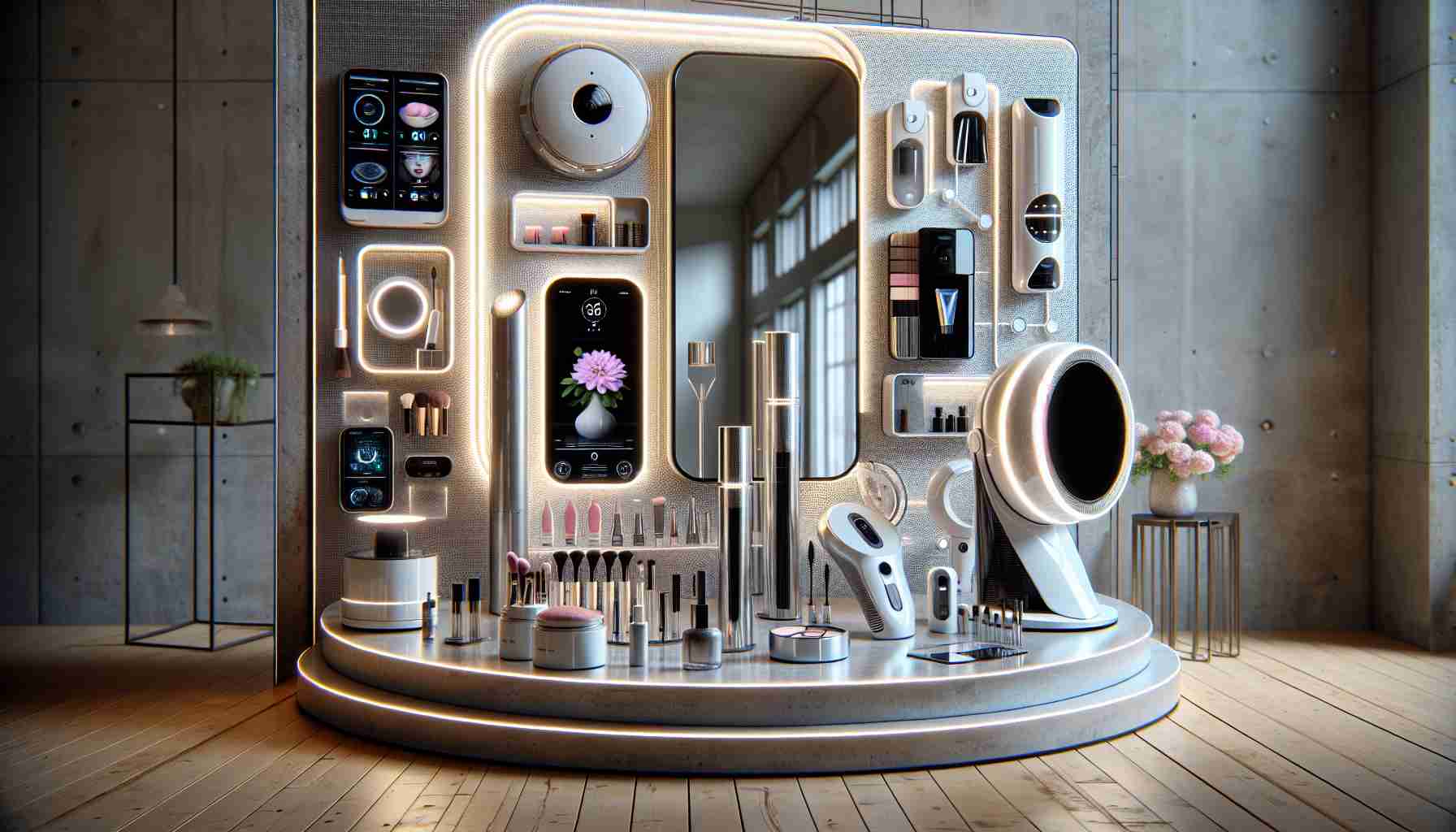The Rise of Beauty Tech at CES 2025
The quest for beauty has captivated humanity since ancient times, evolving from mere aesthetic concerns to a multifaceted celebration of individuality. This drive, alongside technological advancements, took center stage at CES 2025, the preeminent exhibition for electronics and home appliances. Here, the concept of “Beauty Tech” flourished, showcasing innovative solutions that blend science and beauty.
Beauty Tech represents a burgeoning sector focused on tailoring beauty products and services to meet individual needs and preferences. Recent studies reveal that the global beauty tech market was valued at approximately $59.14 billion in 2023, with projections of substantial growth, reaching around $116.17 billion by 2028, at an exceptional annual growth rate of 14%.
At CES 2025, numerous companies showcased breakthroughs in beauty technology. From artificial intelligence (AI)-powered skin assessments to bespoke cosmetic formulations, attendees marveled at how these advancements insist on personalized experiences rather than a one-size-fits-all approach. Notably, Korean firms made waves with their remarkable contributions, earning 210 innovation awards for excellence across various sectors.
L’Oreal introduced its advanced skin analysis device, developed in collaboration with Korean company NanoNTech, showcasing their commitment to integrating deep scientific knowledge with technological innovation. As global interest in beauty tech continues to rise, it’s evident that this dynamic industry is poised to redefine our perceptions of beauty, launching us into an exciting and transformative era.
Unlocking the Future of Beauty: Innovations in Beauty Tech at CES 2025
The Rise of Beauty Tech at CES 2025
The global beauty tech market is undergoing a remarkable transformation, driven by cutting-edge innovations that personalize beauty experiences. As companies merge beauty with technology, the landscape is becoming more competitive and diverse. CES 2025 highlighted these advancements, showcasing how beauty tech is reshaping consumer expectations and market strategies.
Market Insights
Recent reports indicate that the beauty tech sector is expected to maintain a robust annual growth rate of 14%, reaching an estimated value of $116.17 billion by 2028. This growth is propelled by consumer demand for tailored beauty solutions that leverage artificial intelligence, skin biometrics, and custom formulations. Insights reveal that younger consumers, particularly Gen Z and Millennials, are leading this trend, prioritizing products that resonate with their unique identities.
Notable Innovations
At CES 2025, several groundbreaking products and services were revealed that could redefine beauty routines globally:
1. AI-Powered Skin Analysis: Devices capable of analyzing a user’s skin in real-time, offering personalized skincare recommendations based on specific skin types and conditions.
2. Custom Cosmetic Formulators: Machines that blend cosmetics according to individual preferences, allowing consumers to select shades and formulas that best suit their skin tones and personal styles.
3. Biometric Beauty Devices: Wearable technology that tracks skin health metrics, providing users with insights that help them adapt their beauty routines accordingly.
4. Sustainable Packaging Solutions: Innovations focused on reducing waste, with companies developing biodegradable or reusable packaging options for beauty products.
Pros and Cons
Pros:
– Personalized experiences enhancing consumer satisfaction.
– Increased accessibility to high-quality beauty solutions through tech.
– Innovations in sustainability contributing to eco-friendly practices.
Cons:
– Potential data privacy concerns with AI-based technologies.
– Higher costs associated with advanced beauty tech devices.
– Risk of over-reliance on technology for beauty assessments.
Use Cases
Beauty tech is increasingly being utilized in various settings:
– Retail Environments: Brands are employing interactive kiosks for skin analysis to engage customers directly within stores, enhancing the shopping experience.
– Home Use: Smart beauty devices allow consumers to adopt professional-grade skincare routines at home.
– Salons and Spas: Professionals are incorporating beauty tech tools to offer customized treatments that cater to individual client needs effectively.
Trends and Predictions
As technology continues to advance, the beauty tech sector is expected to integrate even more with emerging technologies such as augmented reality (AR) and virtual reality (VR). Users might soon experience virtual try-ons for makeup, drastically changing the way they choose products.
Additionally, sustainability will remain a central theme, with increasingly innovative approaches to minimize the environmental impact of beauty consumption.
Security Aspects
As beauty tech incorporates AI and data analytics, ensuring the security of consumer data is paramount. Companies are expected to adopt strict cybersecurity measures to protect personal information, thus maintaining trust with their user base.
In conclusion, as the beauty tech industry continues to grow and evolve, the innovations showcased at CES 2025 serve as a testament to the future of beauty towards personalization, sustainability, and high-tech solutions. With consumer demand and industry evolution intertwined, the quest for beauty is poised for an exciting transformation.
For more information about the latest trends and innovations in technology, visit CES Tech.
